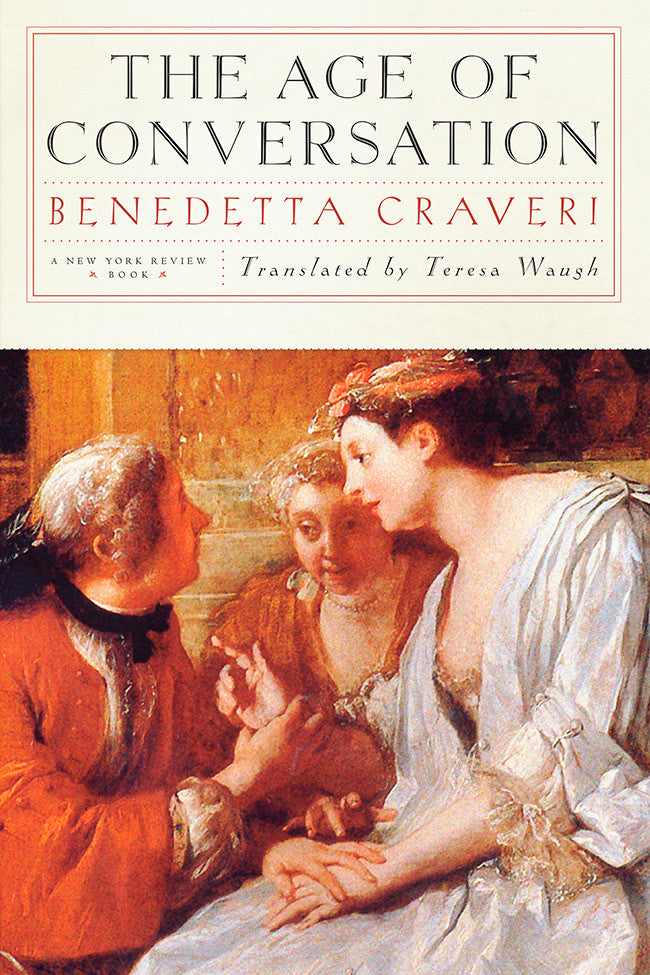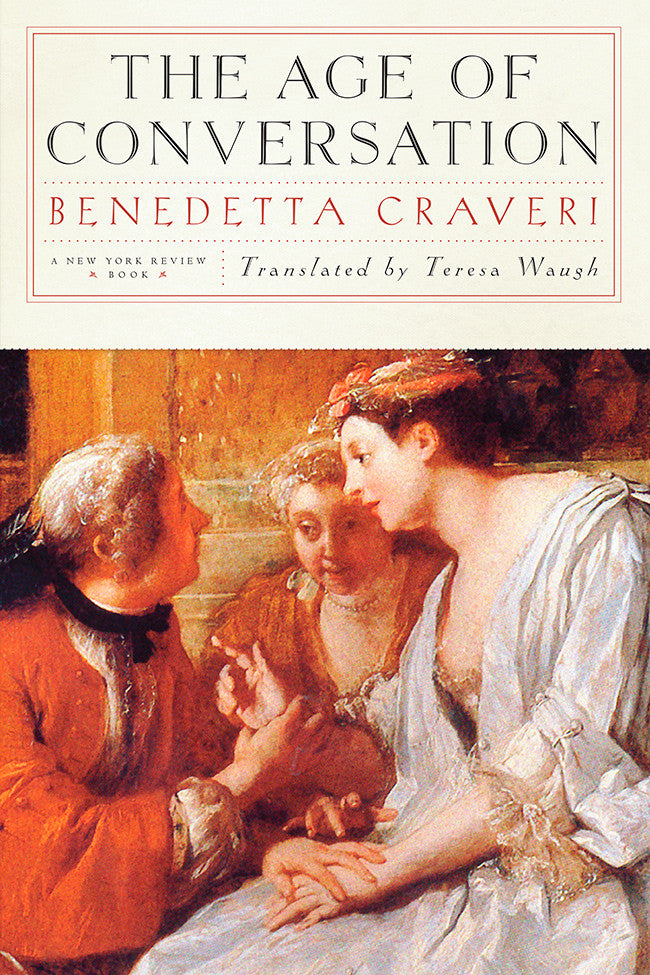In pre-Revolutionary and pre-electrical France, as reported on with tender wit and scholarly scruple by Benedetta Craveri in The Age of Conversation, they were on their way to a grand Enlightenment indeed. But before they got there several generations of remarkable women had to create a brand-new social space, not of the court, not of the church, not of the street, and not even, entirely, of the nobility. This was the salon...
— John Leonard, Harper's
Craveri's account of the French aristocratic circles in which conversation emerged as an art offers a rich blend of personalities, anecdotes, scandal and genuinely amusing letters to flesh out an intellectual argument leading from early 17th century aristocratic entertainment to the Enlightenment salon.
— Publishers Weekly
Craveri focuses her estimable social history on this art's finest and best-known practitioners: Madame de Longueville, the Marquise de Sable, Madame de Sevigne, and their circles. Craveri's summary essay on the seduction, deception, and power of the spoken word shows how this movement among France's noble classes laid groundwork for the coming revolution.
— Booklist
Craveri argues that when, in the sixteen-twenties, the Marquise de Rambouillet offered her home as a place for the French nobility to gather she was unwittingly fermenting a revolution. The next century and a half constituted the golden age of conversation, which allowed the aristocracy to establish a new order, based not on the strictures of church or crown but on manners. Craveri's narrative paints a series of brilliant portraits of those (mostly women) who presided over the new sphere.
— The New Yorker
How refreshing to turn to The Age of Conversation, a book about talk remembered across the centuries, talk that is as fresh now as it was then, though that might be hard to believe in our age of distrusting anything after the instant of its being enunciated. Benedetta Craveri has resurrected in tantalizing, inviting detail the supreme age of talk embodied in the great salons of Paris from the mid-17th to the late 18th centuries and the fascinating women at the center of those salons....This is only the necessary background for the grandes dames who are suddenly alive at the urging of Craveri's fluid prose.
— Thomas McGonigle, Los Angeles Times
Craveri, an Italian professor of French literature, argues that the Marquise de Rambouillet fomented a revolution when she offered her famed salon as a place for the French nobility to gather in the early 17th century. This entertaining book explores a golden age of conversation in France (from 1610 to 1789), in which the aristocracy established a new order, away from the strictures of the royal court.
— The New York Times Book Review
Entertaining...Craveri, an Italian professor of French literature, helpfully highlights the most influential, literate and scandalous of these irrepressible women.
— The New York Times






